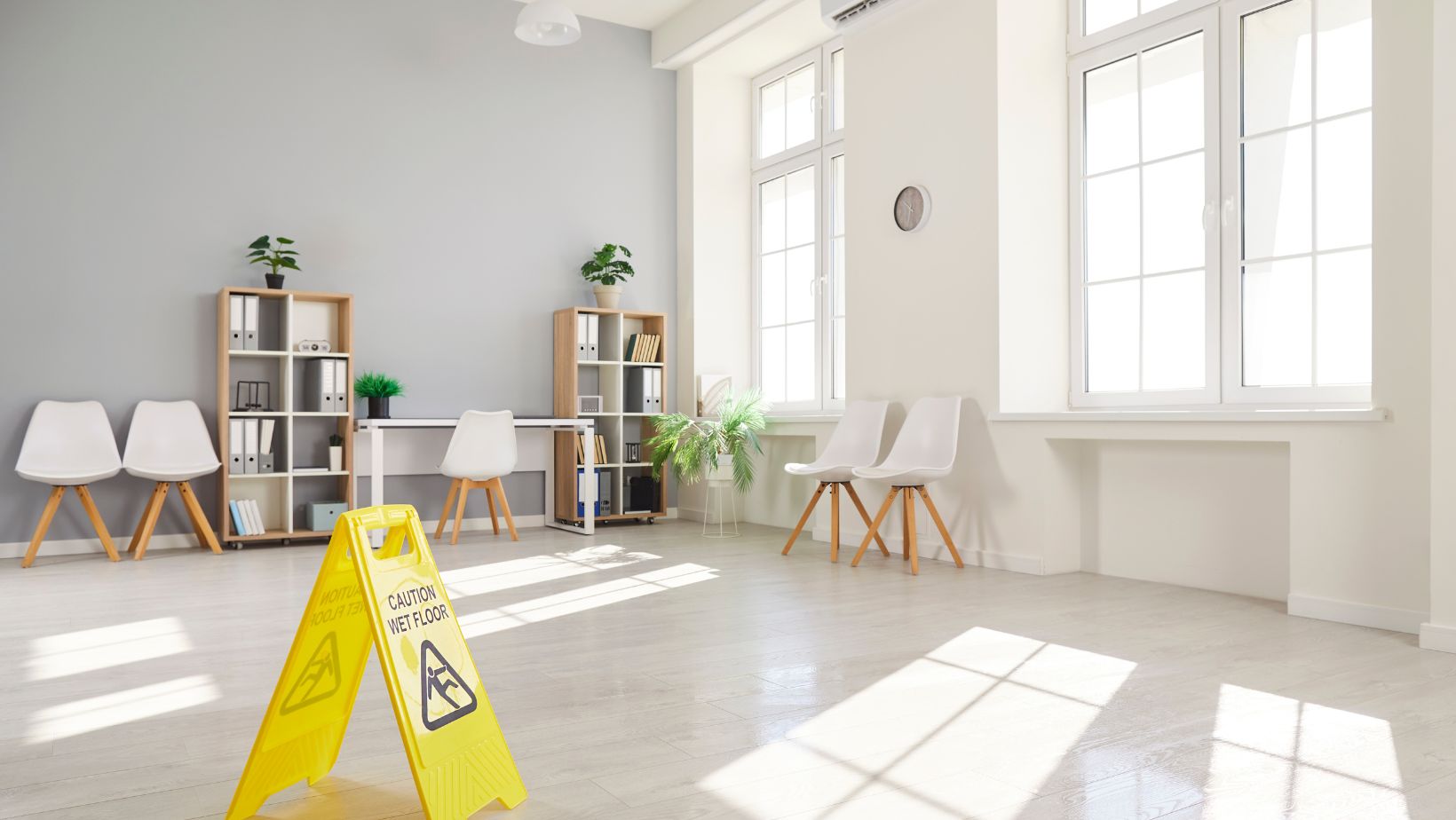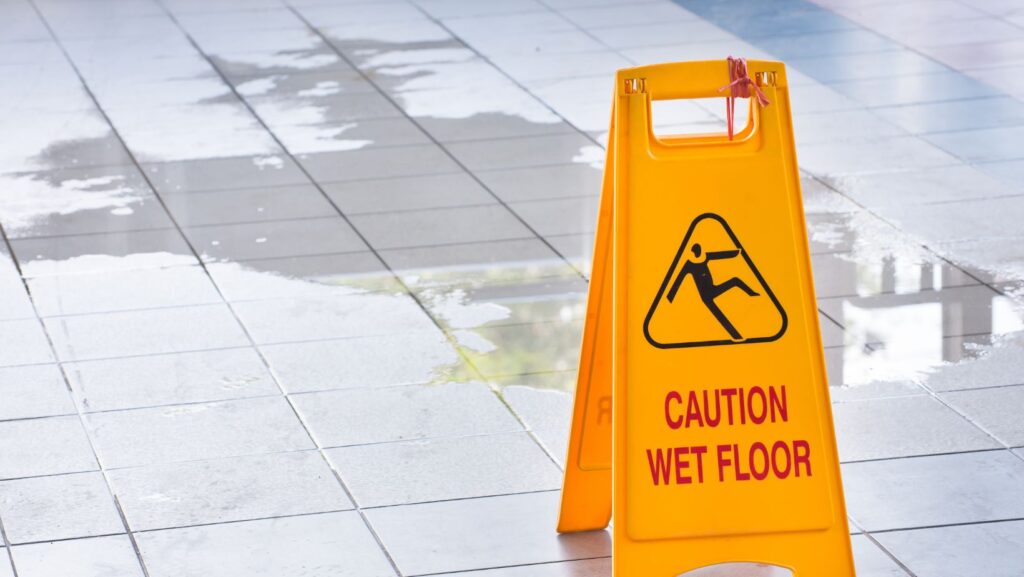
Supermarkets are designed to feel safe, clean, and convenient—but behind those shiny floors and neatly stacked shelves often lie hazards that can cause serious injuries. From slippery entryways to unstable product displays, shoppers are sometimes unaware of the dangers that lurk in everyday places. When these risks lead to falls, head injuries, or other harm, victims often wonder who is to blame and how they can recover.
In Virginia, supermarket owners and operators have a legal duty to keep their premises safe for customers. When negligence leads to an injury, victims can seek compensation with the help of experienced attorneys. Guidance from https://www.becauseyouwanttowin.com/richmond-personal-injury-lawyer/ can make all the difference in uncovering the cause of the accident, proving liability, and holding negligent parties accountable.
Wet Floors and Slippery Surfaces
Spilled drinks, melting ice, or recently mopped floors are among the most common hazards in supermarkets. Even a thin layer of liquid can make tile or linoleum surfaces dangerously slick, leading to falls that cause fractures, back injuries, or head trauma. Store employees must act promptly to clean spills and place visible warning signs until the area is safe again.
When management fails to maintain these standards, it can be considered negligence. Surveillance footage, witness statements, and cleaning logs often become vital evidence in slip-and-fall cases, helping victims prove that the store ignored its duty to prevent accidents.
Common Supermarket Hazards to Watch Out For
Many shoppers are unaware of just how many risks exist in a typical supermarket. While some dangers are easy to spot, others are hidden in plain sight. Staying alert to these common hazards can help prevent accidents and injuries during your next grocery trip.
- Spilled Liquids: Drinks, melted ice, or leaking freezers creating slippery floors.
- Uneven Flooring: Cracked tiles, curled mats, or uneven thresholds that cause tripping.
- Overstocked Shelves: Items stacked too high or without proper support.
- Cluttered Aisles: Boxes, carts, or restocking equipment left in walkways.
- Broken Carts: Defective wheels or handles that cause loss of balance.
- Poor Lighting: Dim or flickering lights that obscure potential hazards.
- Faulty Refrigeration Units: Leaks or electrical issues leading to puddles or short circuits.
Poorly Maintained Equipment and Fixtures
Broken shopping carts, faulty escalators, or uneven flooring can pose hidden threats to customers. These maintenance issues might seem minor but can lead to significant injuries if left unaddressed. Regular inspections and prompt repairs are essential parts of a store’s safety responsibilities.
When maintenance is neglected, the liability may rest on the store owner, property manager, or even a third-party maintenance company. Understanding who is responsible for repairs can be key to pursuing a successful injury claim and ensuring accountability.
Falling Merchandise and Unsafe Shelving
Overloaded or poorly secured shelves can turn an ordinary shopping trip into a dangerous situation. Products placed too high or improperly balanced can easily fall, striking customers on the head or shoulders. These incidents often result from rushed restocking or inadequate employee training.
If a falling product causes an injury, the store could be liable for negligent display or improper storage practices. Photos, witness reports, and incident records can help demonstrate that the accident was entirely preventable.
Parking Lot and Entryway Hazards
The risk of injury doesn’t end at the store’s automatic doors. Parking lots and entryways are frequent sites of accidents due to potholes, cracked pavement, poor lighting, or accumulated ice and debris. These hazards are especially dangerous for elderly customers and families with young children.
Store owners have a responsibility to maintain the areas surrounding their property, ensuring they are well-lit, free from obstacles, and safe in all weather conditions. Failure to do so may expose them to legal liability for injuries that occur on their premises.
Inadequate Security and Poor Lighting
While many people associate supermarkets with physical hazards, negligent security is another serious issue. Poor lighting in parking lots, lack of cameras, or insufficient security personnel can create opportunities for theft, assault, or other harm.
Customers have the right to expect a reasonably safe environment both inside and outside the store. When management ignores known security risks, victims may be able to hold the property owner or store operator responsible for preventable criminal acts that lead to injury.
Food Safety and Contamination Risks
Supermarkets must adhere to strict health and safety regulations when handling and storing food. However, cross-contamination, expired products, and unsanitary food-prep areas can all lead to illness. Foodborne pathogens can cause serious health complications that sometimes require hospitalization.

When contamination occurs due to negligence—such as improper temperature control or failure to rotate stock—the store can be held accountable. Victims of foodborne illness can pursue claims to recover medical expenses, lost wages, and other damages caused by unsafe practices.
Taking Action After a Supermarket Injury
If you’re hurt in a supermarket, acting quickly can make a major difference in your recovery and legal claim. Follow these essential steps to protect your health and preserve your rights:
- Seek medical attention immediately – Your health is the top priority. Even minor injuries should be checked by a professional.
- Document the scene – Take clear photos of the hazard, your injuries, and the surrounding area.
- Report the incident – Notify store management and ensure an official report is filed.
- Preserve evidence – Keep copies of receipts, medical records, and communication with the store.
- Consult a legal professional – An experienced attorney can assess your case, determine liability, and help you pursue fair compensation.
Taking these steps not only strengthens your potential claim but also helps promote safer environments for all shoppers.
Staying Safe and Informed as a Consumer
Supermarkets should be places of convenience—not danger. Yet, hidden risks can turn an ordinary shopping trip into a painful experience. By staying alert, avoiding obvious hazards, and reporting unsafe conditions, shoppers can protect themselves and others from injury. Awareness is the first line of defense against negligence.
If an accident does occur, knowing your rights and the next legal steps can make a tremendous difference. Consulting with skilled attorneys ensures that negligent parties are held accountable and that you receive the support you need to recover—both physically and financially.
